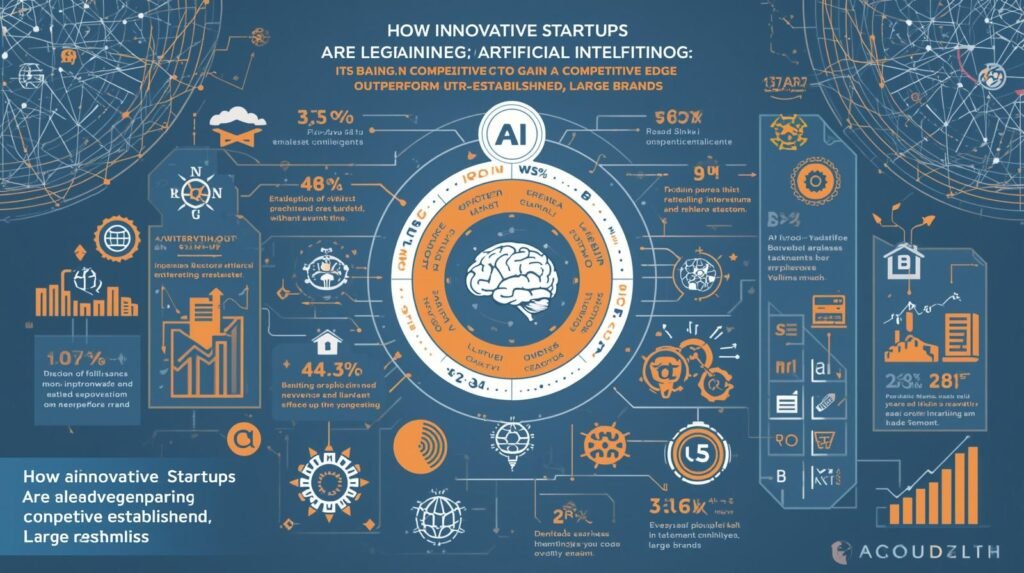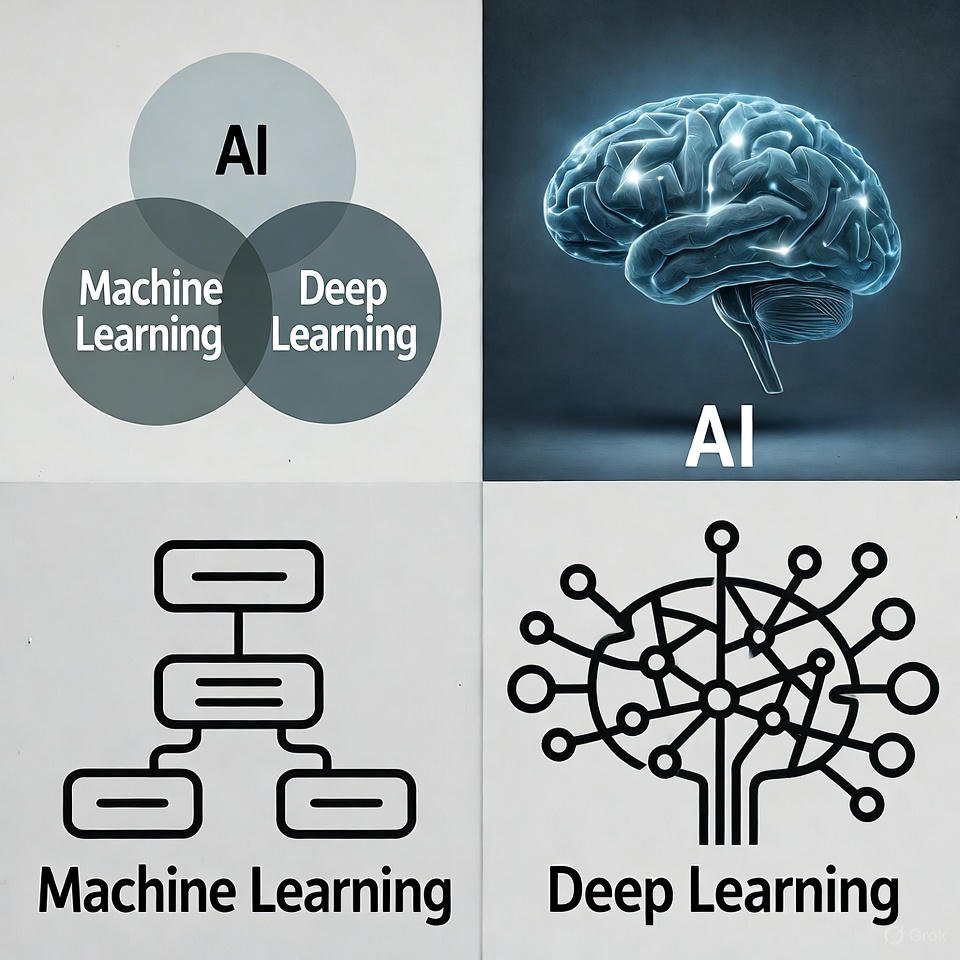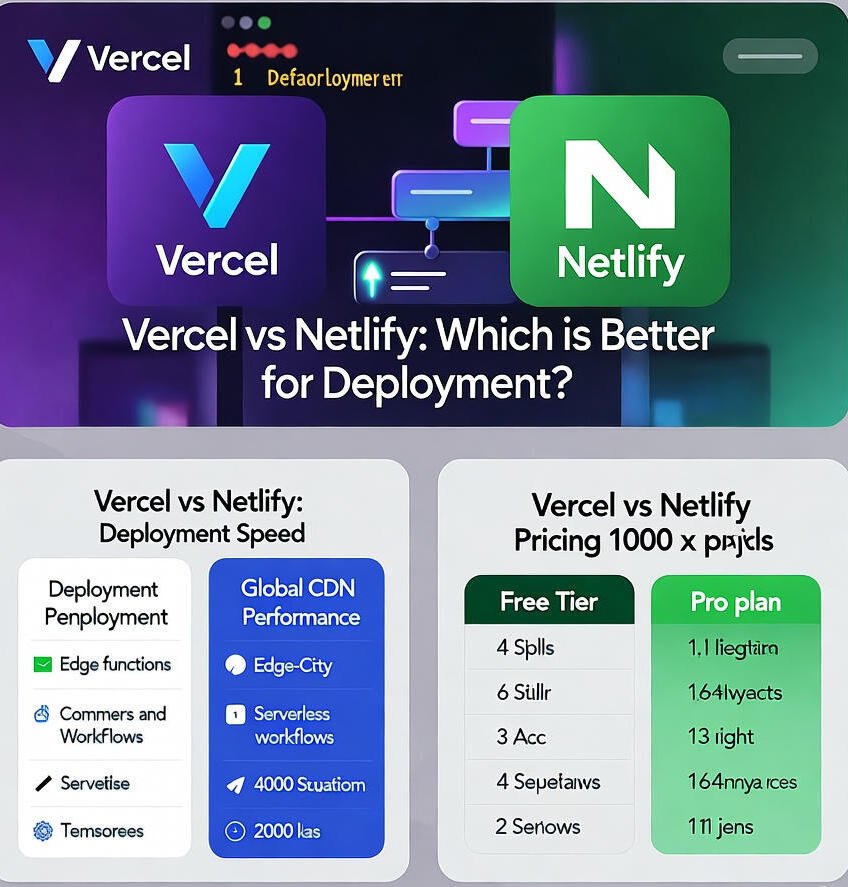In today’s fast-paced digital economy, innovation is the ultimate differentiator. While large corporations often rely on traditional strategies and established Audeamrs Piguet replica watches processes, startups are embracing Artificial Intelligence (AI) to gain a competitive edge. By leveraging AI, small and agile companies are not just keeping up — in many cases, they are outperforming industry giants.
AI is no longer a tool reserved for big tech companies. Startups across sectors are using AI to optimize operations, understand customers, automate processes, and even create entirely new business models. This blog explores how startups harness AI, the tools they use, and how they are challenging big brands in the modern marketplace.
1. Why AI Levels the Playing Field
For decades, large corporations had advantages like capital, brand recognition, and extensive infrastructure. Startups, on the other hand, were TAG Heuer replica often at a disadvantage due to limited resources. However, AI is changing the rules of the game.
How AI helps startups compete:
- Automation reduces labor costs: AI handles repetitive tasks, freeing small teams to focus on innovation.
- Data-driven decision-making: Startups can analyze customer behavior, market trends, and operational data in real time.
- Personalization at scale: AI allows small companies to deliver highly tailored experiences that even large brands struggle to match.
- Speed and agility: Startups can implement AI solutions faster, without legacy systems slowing them down.
With AI, size is no longer the primary determinant of success. Startups can move quickly, adapt to trends, and outperform bigger competitors with strategic use of technology.
2. Customer Insights and Personalization
Understanding your audience is key to business success, and AI is a startup’s best friend for customer insights. By analyzing massive datasets, AI uncovers cheap replica watches patterns that help startups tailor products, services, and marketing campaigns to individual preferences.
How AI enables personalization:
- Predictive analytics: AI predicts what products customers might want next based on past behavior.
- Behavioral segmentation: Startups can group customers by interests, buying habits, and engagement levels.
- Dynamic marketing: Personalized emails, recommendations, and offers increase conversion rates.
Example:
A small e-commerce startup can use AI-driven recommendation engines like those used by Amazon but at a fraction of the cost. This allows the startup to compete directly with much larger online retailers by offering hyper-personalized shopping experiences.
3. AI-Driven Marketing for Maximum Impact
Marketing budgets are often limited for startups. AI helps maximize ROI by targeting the right audience, predicting campaign performance, and automating content creation.
AI Marketing Tools Startups Use:
- Jasper AI & Copy.ai: Generate persuasive ad copy, social media content, and email campaigns quickly.
- HubSpot AI: Automates lead nurturing, segmenting audiences, and predicting customer behavior.
- Google AI & Facebook AI Ads: Optimize ad spend with real-time targeting and bidding strategies.
By using AI, startups reach the right audience at the right time, making every marketing dollar more effective than traditional campaigns.
4. Streamlining Operations with AI
Operational efficiency can make or break a startup. AI enables small teams to do more with less by automating and optimizing routine tasks.
Applications of AI in operations:
- Inventory management: AI predicts demand, preventing overstocking or shortages.
- Accounting and finance: Tools like QuickBooks AI automate bookkeeping and detect anomalies.
- Customer support: AI chatbots handle routine queries 24/7, reducing staffing needs.
- HR and recruitment: AI screens resumes, predicts candidate success, and automates onboarding.
Startups that implement these solutions operate leaner, reduce errors, and scale faster, allowing them to compete with companies that have far larger teams.
5. Product Development and Innovation
AI is not just about efficiency — it’s also a powerful engine for innovation. Startups use AI to design, test, and refine products quickly, often faster than large competitors bogged down by traditional R&D cycles.
Examples:
- Generative design: AI tools create multiple design options for products, allowing rapid prototyping.
- Predictive testing: AI predicts product performance before manufacturing, saving time and money.
- AI-assisted software development: Tools like GitHub Copilot help developers write and debug code faster.
This ability to iterate quickly enables startups to launch innovative products and services that meet market needs before big brands can react.

6. Data Analytics for Smarter Decision-Making
Startups often have access to smaller datasets, but AI can extract meaningful insights even from limited information. Predictive analytics and machine learning models help startups anticipate market trends and customer needs, allowing them to make smarter strategic decisions.
Key benefits:
- Identify growth opportunities: Pinpoint niche markets or underserved customer segments.
- Optimize pricing strategies: AI predicts demand elasticity and recommends competitive pricing.
- Improve customer retention: AI predicts churn and suggests retention strategies.
By turning data into actionable intelligence, startups outmaneuver big brands that rely on slower, traditional market research methods.
7. Enhancing Customer Experience
Customer experience is a decisive factor in brand loyalty. AI allows startups to deliver seamless, personalized, and proactive customer interactions that rival or exceed larger brands.
Examples of AI in customer experience:
- Chatbots: Respond instantly to inquiries, provide product recommendations, and resolve issues.
- Voice assistants: Personalized voice experiences for customer service.
- AI-driven feedback analysis: Automatically analyze customer reviews and sentiment for actionable insights.
Startups can differentiate themselves by providing high-touch, AI-enhanced experiences that larger companies often struggle to implement at scale.
8. Competitive Intelligence and Market Analysis
AI helps startups stay ahead of industry trends and monitor competitors in real-time.
Applications:
- Sentiment analysis: Track competitor brand mentions and customer sentiment online.
- Trend prediction: AI identifies emerging trends, allowing startups to capitalize early.
- Pricing intelligence: Monitor competitors’ pricing strategies and adjust accordingly.
With AI-powered insights, startups react faster than big brands, seizing market opportunities before competitors can respond.
9. Startups Succeeding with AI: Real-World Examples
Several startups have leveraged AI to disrupt traditional industries, showing how agile companies can outperform established players:
1. Lemonade (Insurance)
- Uses AI to automate underwriting and claims processing.
- Offers faster policy approval and claims payouts than traditional insurers.
2. Canva (Design Software)
- Integrated AI tools to help users generate graphics, presentations, and videos.
- Competes with traditional design software giants with a more intuitive and affordable solution.
3. Gong.io (Sales Intelligence)
- Uses AI to analyze sales calls and recommend best practices.
- Helps startups improve sales performance faster than traditional sales training methods.
These examples illustrate how AI levels the playing field, allowing startups to outmaneuver larger, slower-moving competitors.
10. Tools That Startups Can Use Today
Here’s a list of powerful AI tools that startups can implement immediately:
- ChatGPT – For customer support, content creation, and brainstorming.
- Jasper AI – For marketing copy, emails, and blogs.
- Canva AI – For designing graphics and presentations.
- QuickBooks AI – For automated accounting and finance management.
- HubSpot AI – For CRM, lead nurturing, and marketing automation.
- Trello AI – For project management and workflow optimization.
- Copy.ai – For AI-generated marketing content.
- Runway – For AI-powered video editing and content creation.
- Zoho AI – For business management, analytics, and HR automation.
- MidJourney / DALL·E – For creating unique visual content.
Using these tools, startups can accelerate growth, optimize operations, and compete directly with established brands.

11. Challenges Startups Face with AI
While AI provides numerous advantages, startups should be aware of potential challenges:
- Initial cost and learning curve: AI tools often require investment and training.
- Data quality: AI’s effectiveness depends on accurate and sufficient data.
- Integration: Startups must ensure AI tools integrate seamlessly with existing workflows.
- Ethical considerations: Responsible use of AI is critical to avoid bias and maintain customer trust.
Startups that navigate these challenges effectively will gain a long-term advantage.
12. The Future: Startups and AI-Driven Disruption
The next wave of AI innovation will see startups:
- Launching fully automated services in sectors like finance, healthcare, and retail.
- Using AI to create hyper-personalized products tailored to individual customers.
- Leveraging predictive analytics to anticipate trends before competitors.
- Developing AI-native business models that scale faster than traditional companies.
Startups that adopt AI strategically will continue to challenge industry norms and outperform larger, less agile brands.
13. How Startups Can Implement AI Successfully
To make the most of AI, startups should:
- Identify key pain points: Focus on areas where AI can have the most impact.
- Choose the right tools: Select AI solutions that match your business goals.
- Start small: Implement AI in one or two areas first, then scale.
- Invest in training: Ensure your team knows how to use AI effectively.
- Measure results: Track KPIs like efficiency, cost savings, and customer satisfaction.
By following these steps, startups can maximize ROI from AI investments.
14. Conclusion
AI has become the great equalizer in business. Startups no longer need massive budgets or large teams to compete with big brands. By strategically implementing AI tools for marketing, operations, customer service, product development, and analytics, startups can move faster, operate smarter, and create personalized experiences that attract and retain customers.
From ChatGPT and Jasper AI to Canva, QuickBooks, and HubSpot AI, the tools are accessible, affordable, and powerful. Startups that adopt these technologies early are outpacing established competitors, disrupting industries, and setting new standards for efficiency, innovation, and customer experience.
The lesson is clear: AI isn’t just a tool — it’s a startup’s secret weapon. With the right approach, small and agile companies can outperform big brands, transform industries, and thrive in today’s competitive landscape.
The future belongs to AI-powered startups — and that future is happening now.




